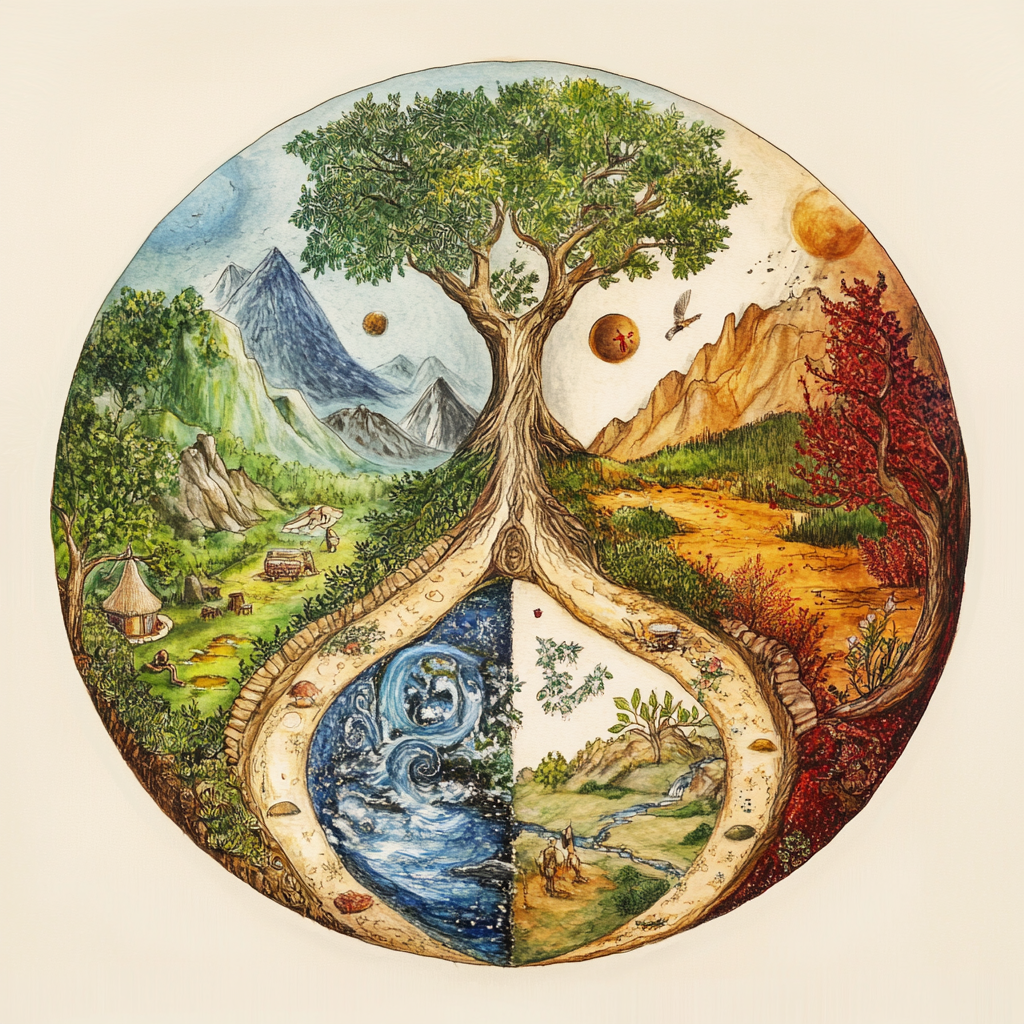
Ayurveda, the ancient Indian science of life and healing, is built around a unique understanding of how nature manifests within each individual. Central to this philosophy are the Doshas—the three fundamental energies that govern all biological, psychological, and emotional functions in the body and mind.
The Doshas are not just abstract ideas or philosophical constructs; they are living principles that determine how we think, feel, move, eat, digest, and sleep. By understanding your Dosha, you gain the keys to creating balance, maintaining health, and aligning with your natural tendencies.

In Ayurveda, all of nature—including the human body—is composed of five elements: Earth, Water, Fire, Air, and Ether (Space). These elements combine to form three dynamic energies or Doshas:
Each Dosha has distinct physical, mental, and emotional characteristics. Every individual has all three Doshas, but in unique proportions. One or two are typically dominant, forming your inherent constitution or Prakriti.
When your Doshas are in balance, you experience optimal health, clarity, and vitality. When they become imbalanced due to diet, stress, environment, or lifestyle, physical and mental disorders can arise.
Vata Body Traits:
Vata Mind Traits:
When Imbalanced:
How to Balance Vata:
Pitta Body Traits:
Pitta Mind Traits:
When Imbalanced:
How to Balance Pitta:
Kapha Body Traits:
Kapha Mind Traits:
When Imbalanced:
How to Balance Kapha:
While a qualified Ayurvedic practitioner can provide a comprehensive analysis, you can begin by observing your body and mind over time. Here's a high-level guide:
You can also take a Dosha quiz online as a starting point, but remember your true Prakriti is best understood over time with self-awareness and guidance.
Understanding your Dosha helps you:
Ayurveda sees you as a unique individual, not a diagnosis. Your Dosha is a blueprint for how you interact with the world, and honoring it leads to better health and self-awareness.

Doshas are the foundation of the Ayurvedic wellness system. By understanding your Dosha and listening to your body and mind, you can live in greater harmony with nature and yourself. This knowledge empowers you to take charge of your health and make mindful, tailored decisions every day.
Start by observing your natural tendencies and making small adjustments. Over time, these shifts can lead to profound transformation—physically, emotionally, and spiritually.
Welcome to the wisdom of the Doshas—your path to balance starts here.